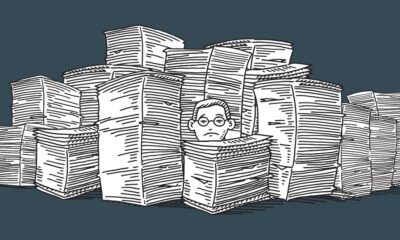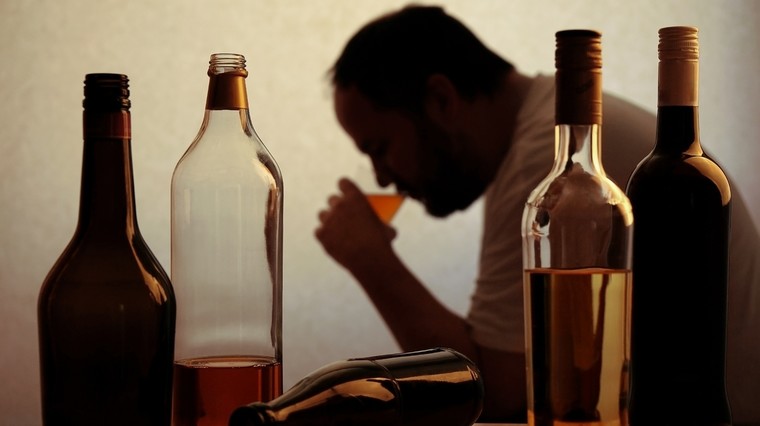
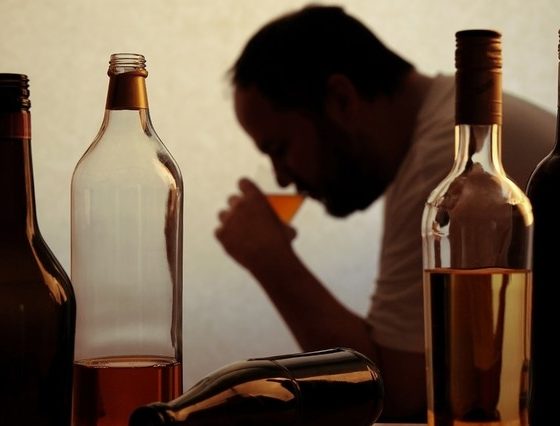
Society
How much alcohol do Moldovans consume? The repercussions and solutions of this problem
The Republic of Moldova is one of the few countries in this world that celebrates the “National Wine Day”. The celebration is organised every year on first weekend of October. Thousands of people gather, at that time, in the city centre of Chișinău to taste newly appeared on the market, as well as popular types of wine produced by wineries from all over the country. The fete of 2019 hosted 68 wine producers.
At the same time, the World Health Organisation (WHO) Global status Report on Alcohol and Health for 2018 says that Moldova has the highest levels of alcohol consumption per capita in the world. Even though the trend of alcohol consumption in Moldova is decreasing, as it dropped from 21.6 litres per capita in 2005 to 15.1 litres per capita in 2016 for persons over 15 years, that still does not remove it from this top.
According to the report, Moldovans mostly drink wine – 57% of their consumption is represented by wine, followed by 25% spirits and 16% beer.
Alcohol and health
It is not as important to analyse the quantity of the drunk alcohol, as the way it is consumed and the effects on the population. Therefore, the same WHO report states that, in 2016, 1907 persons out 100 000 died of liver cirrhosis, 188 out of 100 000 died of road traffic injuries and 799 out of 100 000 died of cancer. According to national statistics, there were also recorded 3.5 deaths per 100,000 people caused by alcohol intoxication in 2016.
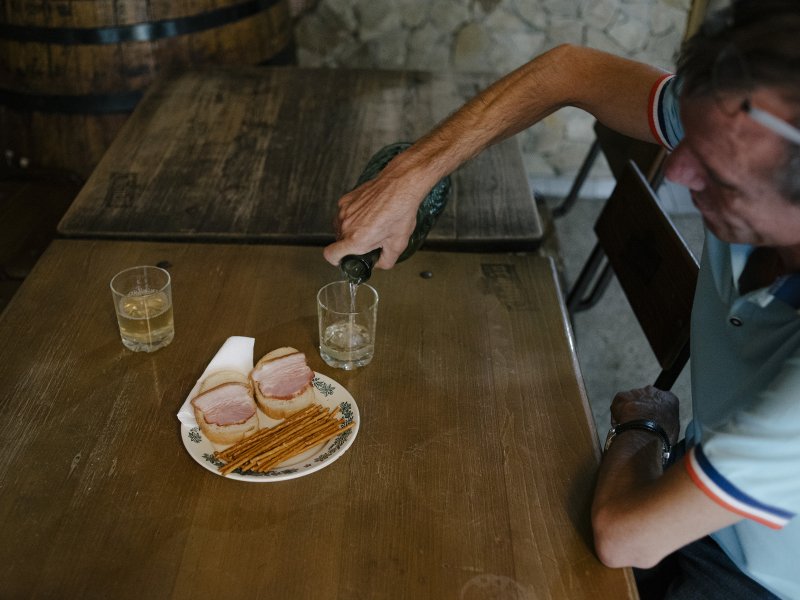
source: time.com
Alcohol is the cause of over 200 different diseases, including: neuropsychiatric disorders (epilepsy, depression, anxiety), digestive disorders (alcoholic liver cirrhosis, acute and chronic pancreatitis, alcoholic gastropathy), cancers (of the digestive tract and breast) or cardiovascular diseases (ischaemic, hemorrhagic, hypertension). Sexual dysfunctions are also very common – impotence for men and frigidity for women. When consuming an excessive amount of alcohol, the general tone of the body decreases, the interests, the goals in life disappear.
Alcohol abuse by pregnant women presents an essential danger to the unborn child. When a pregnant woman drinks, alcohol is accumulated in the fetus’s body. The toxic effect is extremely high during intrauterine development, causing irreversible damage to the central nervous system of fetus: neurons do not develop properly, some cells are destroyed, others develop abnormally, as Ministry of Health is warning.
Alcohol and teenagers
Young people alcohol consumption is another alarming phenomenon in the Moldovan society. The data (the 2015 ESPAD Report) shows that, in Moldova, 82% of pupils in 8th and 9th grades have consumed alcohol at least once in their lifetime. About 9% of them declared that they already suffered an alcohol intoxication.
Alcohol and drivers
This year, traffic police officers discovered 3751 cases of drunk drivers. Because of drunk drivers, 30 people lost their lives on the country’s roads, and 134 suffered traumas. According to the National Patrol Inspectorate, the information campaigns, operations and sanctions applied by the police seem to be ignored by the drivers, which endanger the safety in road traffic.
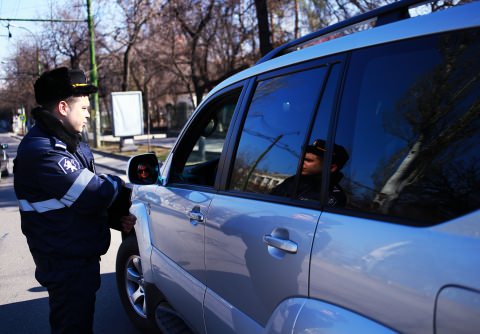
source: politia.md
Alcohol and violence
In addition to the impact on health and high risk of causing traumas, the excessive alcohol consumption may have dramatic social consequences, such as relational problems (deterioration of family relationships, separation, divorce, abuse and neglect of children), loss of friends, material difficulties, loss of work, loss of home, social exclusion, legal issues (fines, imprisonment), inappropriate sexual behaviour (unprotected sex, rape, unwanted pregnancy), etc.
According to the WHO report, men consume 4 times more alcohol than women. Therefore, the consumption of alcoholic beverages increases the risk of domestic violence, especially towards women.
A report from 2011 on violence against women in the Republic of Moldova shows that 79% of respondents consider excessive alcohol consumption to be the main cause of domestic violence and a share of 38.7% of women in Moldova are victims of physical violence because of their consuming alcohol husband, whereas 50,4% of women are victims of sexual violence. Even though the data may be a bit outdated and the situation could have been improved in the meantime, the numbers are more than alarming.
Identified solutions
Moldova has a national policy regarding alcohol consumption, implemented excise taxes on alcohol and restrictions for selling alcoholic beverages. In 2012, the Ministry of Health adopted an eight-year national plan to ban certain advertisements, raised taxes on hard liquor, restricted sales hours and raised the legal drinking age from 16 to 18. Also, the government reduced the legal blood alcohol content, made penalties more severe and increased breath testing.
Various measures are tried to be implemented by the local authorities as well. In 2018, the former mayor of Puhoi village, Petru Frunze, promoted an innovative project. He invited 20 alcohol addicted persons to sign an agreement with the mayor’s office, which obligated them to stop consuming alcoholic beverages for half a year. Instead, he promised them jobs and cash prizes worth 1,000 MDL.
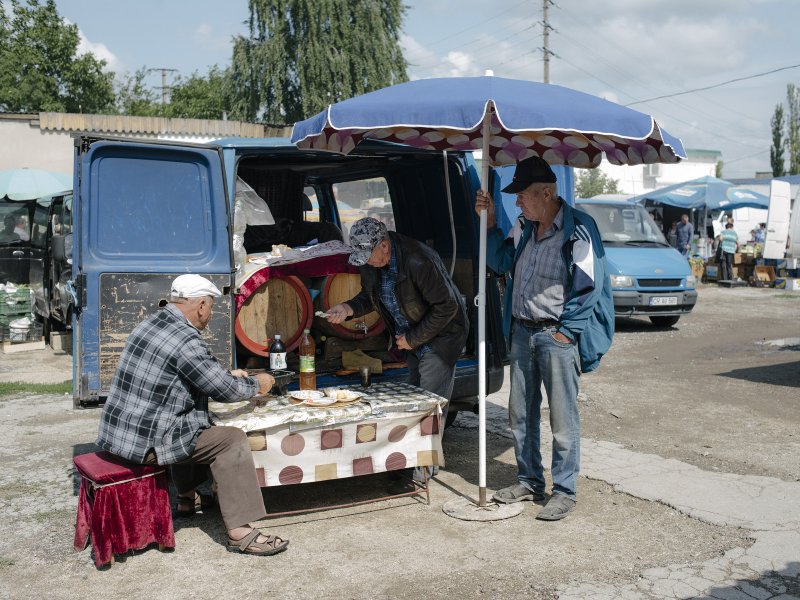
source: time.com
The purpose of the initiative was to determine capable to work but alcohol-dependent citizens to be hired and work, thus to reduce domestic violence. Petru Frunze believes that in order to solve the problem of alcoholism in the country, a specialised institution must be created, as Moldova.org reported.
“There should be someone who always watches over them, because otherwise they fall into temptation. It would be good to have an institution at the national level to deal with such things, to develop rehabilitation programs for alcohol addicts. In addition, the problem begins in the teenage years. Even if young people are graduating, they are not encouraged to start to work. There are many jobs that are not so well paid, but still a salary of 5,000-6,000 lei is a better alternative than becoming alcoholic. The state must get involved.”
Currently, the project is no longer carried out in Puhoi. However, it may serve as a good example of trying to solve such social problems on the local level.
Last year, the National Probation Inspectorate, which aims to implement the measures of reintegration of the Moldovan offenders in the society, set up a method to fight drunk or drugged drivers: their driving licences are withdrawn. In order to recover them, drivers have to take special courses.
The program was called “Drink & Drive” and started in March 2019, including 12 sessions. During two of them, the beneficiaries go to the Legal Medicine Centre and the Emergency Hospital. They participate in the autopsy process and even wash the bodies or their places of storage, and in case of emergency, they must provide assistance to road accident victims.
At the same time, the National Police of Moldova launched a telephone line (067 112 902) exclusively for the notification of the Police regarding the cases of drivers driving or attempting to drive their cars while being drunk.
A still existing problem
According to Time, accurate figures for Moldova are hard to reach because up to 70% of consumed alcohol is homemade wine. At the same time, while taxes on hard liquor were raised, beer and wine are still cheap. There is no legal requirement of asking beer and wine consumers to present their ID in Moldovan pubs and bars.
Moreover, the existing regulations are not effectively enforced. For example, most bars and supermarkets don’t care about the legal time restrictions, nor the about the legal age limits, especially in the countryside.
The law on preventing and combating domestic violence in Moldova still contains lacuna and is not fully enforced to fight this phenomenon.
Photo: time.com
Society
“They are not needy, but they need help”. How Moldovan volunteers try to create a safe environment for the Ukrainian refugees

At the Government’s ground floor, the phones ring constantly, the laptop screens never reach standby. In one corner of the room there is a logistics planning meeting, someone has a call on Zoom with partners and donors, someone else finally managed to take a cookie and make some coffee. Everyone is exhausted and have sleepy red eyes, but the volunteers still have a lot of energy and dedication to help in creating a safe place for the Ukrainian refugees.
“It’s like a continuous bustle just so you won’t read the news. You get home sometimes and you don’t have time for news, and that somehow helps. It’s a kind of solidarity and mutual support,” says Vlada Ciobanu, volunteer responsible for communication and fundraising.
The volunteers group was formed from the very first day of war. A Facebook page was created, where all types of messages immediately started to flow: “I offer accommodation”, “I want to help”, “I want to get involved”, “Where can I bring the products?”, “I have a car and I can go to the customs”. Soon, the authorities also started asking for volunteers’ support. Now they all work together, coordinate activities and try to find solutions to the most difficult problems.
Is accommodation needed for 10, 200 or 800 people? Do you need transportation to the customs? Does anyone want to deliver 3 tons of apples and does not know where? Do you need medicine or mobile toilets? All these questions require prompt answers and actions. Blankets, sheets, diapers, hygiene products, food, clothes – people bring everything, and someone needs to quickly find ways of delivering them to those who need them.
Sometimes this collaboration is difficult, involves a lot of bureaucracy, and it can be difficult to get answers on time. “Republic of Moldova has never faced such a large influx of refugees and, probably because nobody thought this could happen, a mechanism of this kind of crisis has not been developed. Due to the absence of such a mechanism that the state should have created, we, the volunteers, intervened and tried to help in a practical way for the spontaneous and on the sport solutions of the problems,” mentions Ecaterina Luțișina, volunteer responsible for the refugees’ accommodation.
Ana Maria Popa, one of the founders of the group “Help Ukrainians in Moldova/SOS Українці Молдовa” says that the toughest thing is to find time and have a clear mind in managing different procedures, although things still happen somehow naturally. Everyone is ready to intervene and help, to take on more responsibilities and to act immediately when needed. The biggest challenges arise when it is necessary to accommodate large families, people with special needs, for which alternative solutions must be identified.
Goods and donations
The volunteers try to cope with the high flow of requests for both accommodation and products of all kinds. “It came to me as a shock and a panic when I found out that both mothers who are now in Ukraine, as well as those who found refuge in our country are losing their milk because of stress. We are trying to fill an enormous need for milk powder, for which the demand is high and the stocks are decreasing”, says Steliana, the volunteer responsible for the distribution of goods from the donation centers.
Several centers have been set up to collect donations in all regions of Chisinau, and volunteers are redirecting the goods to where the refugees are. A system for processing and monitoring donations has already been established, while the volunteer drivers take over the order only according to a unique code.
Volunteers from the collection centers also do the inventory – the donated goods and the distributed goods. The rest is transported to Vatra deposit, from where it is distributed to the placement centers where more than 50 refugees are housed.
When they want to donate goods, but they don’t know what would be needed, people are urged to put themselves in the position of refugees and ask themselves what would they need most if they wake up overnight and have to hurriedly pack their bags and run away. Steliana wants to emphasise that “these people are not needy, but these people need help. They did not choose to end up in this situation.”
Furthermore, the volunteer Cristina Sîrbu seeks to identify producers and negotiate prices for products needed by refugees, thus mediating the procurement process for NGOs with which she collaborates, such as Caritas, World Children’s Fund, Polish Solidarity Fund, Lifting hands, Peace Corps and others.
One of the challenges she is facing now is the identifying a mattress manufacturer in the West, because the Moldovan mattress manufacturer that has been helping so far no longer has polyurethane, a raw material usually imported from Russia and Ukraine.
Cristina also needs to find solutions for the needs of the volunteer groups – phones, laptops, gsm connection and internet for a good carrying out of activities.
Hate messages
The most difficult thing for the communication team is to manage the hate messages on the social networks, which started to appear more often. “Even if there is some sort of dissatisfaction from the Ukrainian refugees and those who offer help, we live now in a very diverse society, there are different kind of people, and we act very differently under stress,” said Vlada Ciobanu.
Translation by Cătălina Bîrsanu
Important
#WorldForUkraine – a map that shows the magnitude of the world’s actions against Russian aggression

The international community and volunteers from all over te world have launched #WorldForUkraine as a platform that shows the magnitude of the world’s actions against the Russian aggression. In a digital world – it is an interactive map of public support of Ukrainians under the hashtag #WorldForUkraine – rallies, flash mobs, protests around the world. In the physical dimension – it is your opportunity to take to the streets and declare: “No to Putin’s aggression, no to war.”
„Today, along with the political and military support, emotional connection with the civilized world and truthful information are extremely important for Ukraine. The power to do it is in your hands. Join the #WorldForUkraine project and contribute to the victorious battle against the bloodshed inflicted on Ukraine by the aggression of the Russian Federation”, says the „about the project” section of the platform.
Go to the streets — Tell people — Connect and Unite — Become POWERFUL
Volunteers have launched #WorldForUkraine as a platform that shows the magnitude of the world’s actions against Russian aggression. In digital world – it is an INTERACTIVE MAP of public support of Ukrainians worldforukraine.net under the hashtag #WorldForUkraine – rallies, flash mobs, protests around the world. In the physical dimension – it is your opportunity to take to the streets and declare: “No to Putin’s aggression, no to war.” There you may find information about past and future rallies in your city in support of Ukraine. This is a permanent platform for Ukrainian diaspora and people all over the world concerned about the situation in Ukraine.
So here’s a couple of things you could do yourself to help:
* if there is a political rally in your city, then participate in it and write about it on social media with geolocation and the hashtag #WorldForUkraine
* if there are no rallies nearby, organize one in support of Ukraine yourself, write about it on social media with geolocation adding the hashtag #WorldForUkraine
The map will add information about gathering by #WorldForUkraine AUTOMATICALLY
Your voice now stronger THAN ever
All rallies are already here: https://worldforukraine.net
Important
How is Moldova managing the big influx of Ukrainian refugees? The authorities’ plan, explained

From 24th to 28th of February, 71 359 Ukrainian citizens entered the territory of Republic of Moldova. 33 173 of them left the country. As of this moment, there are 38 186 Ukrainian citizens in Moldova, who have arrived over the past 100 hours.
The Moldovan people and authorities have organized themselves quickly from the first day of war between Russia and Ukraine. However, in the event of a prolonged armed conflict and a continuous influx of Ukrainian refugees, the efforts and donations need to be efficiently managed. Thus, we inquired about Moldova’s long-term plan and the state’s capacity to receive, host, and treat a bigger number of refugees.
On February 26th, the Ministry of Labor and Social Protection of Moldova approved the Regulation of organization and functioning of the temporary Placement Center for refugees and the staffing and expenditure rules. According to the Regulation, the Centers will have the capacity of temporary hosting and feeding at least 20 persons, for a maximum of 3 months, with the possibility of extending this period. The Centers will also offer legal, social, psychological, and primary medical consultations to the refugees. The Center’s activity will be financed from budget allocations, under Article 19 of Provision no. 1 of the Exceptional Situations Commission from February 24th, 2022, and from other sources of funding that do not contravene applicable law.
The Ministry of Inner Affairs and the Government of Moldova facilitated the organization of the volunteers’ group “Moldova for Peace”. Its purpose is to receive, offer assistance and accommodation to the Ukrainian refugees. The group is still working on creating a structure, registering and contacting volunteers, etc. It does not activate under a legal umbrella.
Lilia Nenescu, one of the “Moldova for Peace” volunteers, said that the group consists of over 20 people. Other 1700 registered to volunteer by filling in this form, which is still available. The group consists of several departments:
The volunteers’ department. Its members act as fixers: they’re responsible for connecting the people in need of assistance with the appropriate department. Some of the volunteers are located in the customs points. “The Ministry of Inner Affairs sends us every day the list of the customs points where our assistance is needed, and we mobilize the volunteers”, says Lilia Nenescu.
The Goods Department manages all the goods donated by the Moldavian citizens. The donations are separated into categories: non-perishable foods and non-food supplies. The volunteers of this department sort the goods into packages to be distributed.
The Government intends to collect all the donations in four locations. The National Agency for Food Safety and the National Agency for Public Health will ensure mechanisms to confirm that all the deposited goods comply with safety and quality regulations.
The Service Department operates in 4 directions and needs the volunteer involvement of specialists in psychology, legal assistance (the majority of the refugees only have Ukrainian ID and birth certificates of their children); medical assistance; translation (a part of the refugees are not Ukrainian citizens).
According to Elena Mudrîi, the spokesperson of the Ministry of Health, so far there is no data about the number of Covid-19 positive refugees. She only mentioned two cases that needed outpatient medical assistance: a pregnant woman and the mother of a 4-day-old child.
The Accommodation Department. The volunteers are waiting for the centralized and updated information from the Ministry of Labor about the institutions offering accommodation, besides the houses offered by individuals.
The Transport Department consists of drivers organized in groups. They receive notifications about the number of people who need transportation from the customs points to the asylum centers for refugees.
The municipal authorities of Chișinău announced that the Ukrainian children refugees from the capital city will be enrolled in educational institutions. The authorities also intend to create Day-Care Centers for children, where they will be engaged in educational activities and will receive psychological assistance. Besides, the refugees from the municipal temporary accommodation centers receive individual and group counseling.
In addition to this effort, a group of volunteers consisting of Ana Gurău, Ana Popapa, and Andrei Lutenco developed, with the help of Cristian Coșneanu, the UArefugees platform, synchronized with the responses from this form. On the first day, 943 people offered their help using the form, and 110 people asked for help. According to Anna Gurău, the volunteers communicate with the Government in order to update the platform with the missing data.
Translation from Romanian by Natalia Graur












